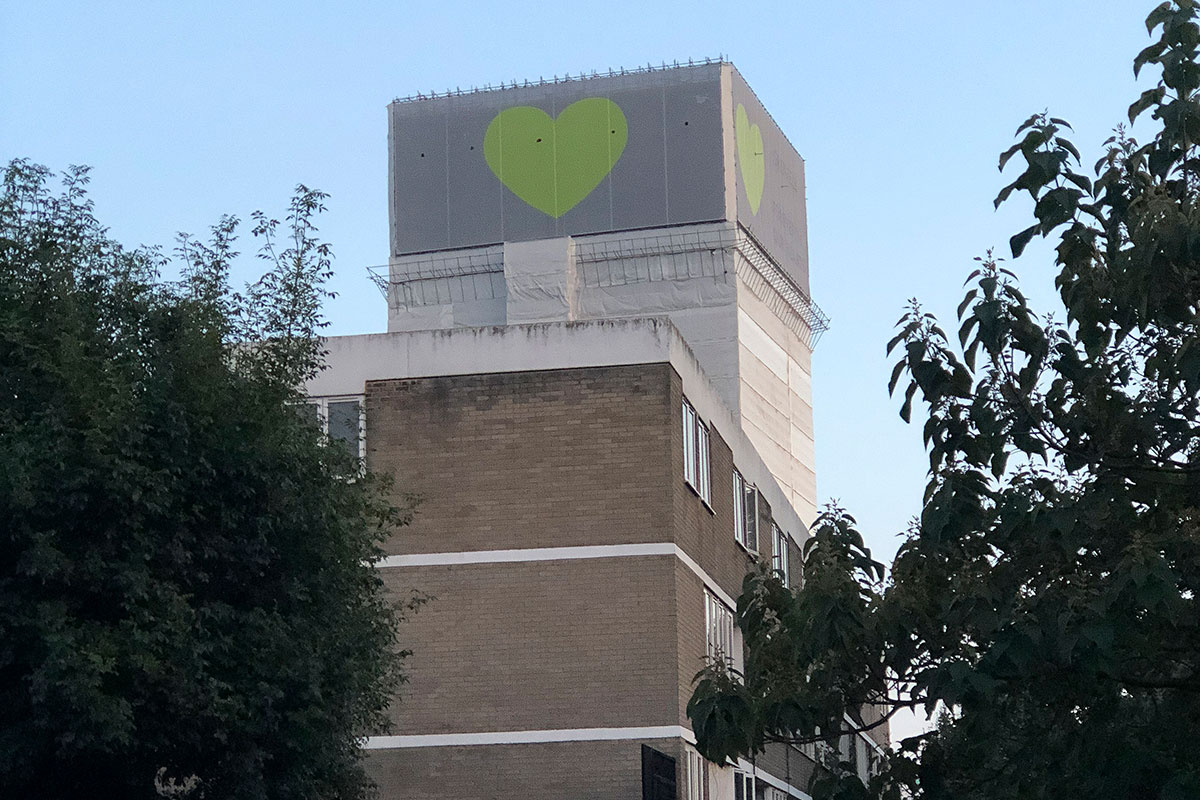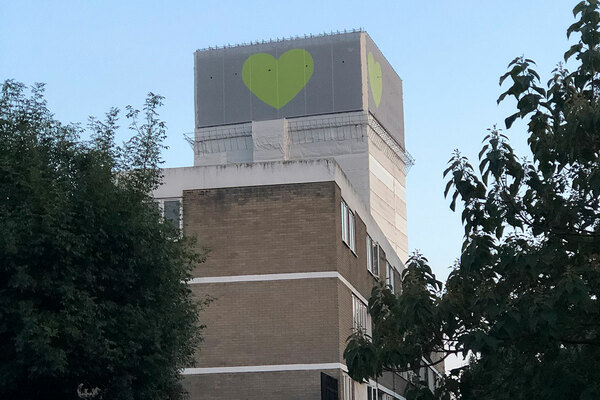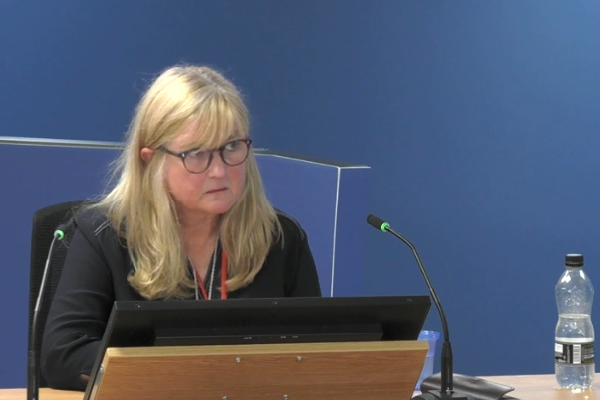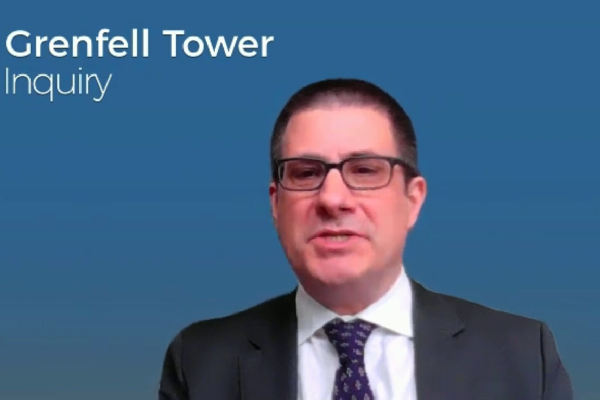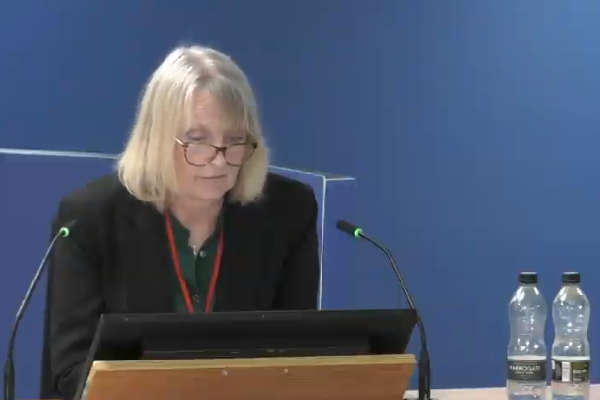You are viewing 1 of your 1 free articles
Bereaved Grenfell family threatens legal action over government plan to republish withdrawn fire safety guide
The bereaved relatives of a victim of the Grenfell fire have threatened legal action over the Home Office’s plan to republish controversial fire safety guidance downplaying the need for evacuation plans for disabled residents.
The family of Sakina Afrasehabi have warned the Home Office that they plan to seek a judicial review of its proposal to republish fire safety guidance for high rise buildings that was withdrawn by the Local Government Association (LGA) in April.
This guidance - which has been hugely influential in the housing sector’s approach to fire safety for a decade - says it is “usually unrealistic” for landlords to provide personal emergency evacuation plans (PEEPs) for residents with disabilities.
But this advice, first issued in 2011, flies in the face of the recommendations made by Grenfell Tower Inquiry chair Sir Martin Moore-Bick in October 2019 which the government has committed to implement.
In a separate letter, the family also raised concerns about the ongoing appointment of the author of this guidance, Colin Todd, to produce post-Grenfell updates, saying he is “mistrusted” by Grenfell Tower families.
This is the latest step in a legal campaign by the family to force the government to implement the inquiry’s recommendation that disabled residents in tower blocks should be provided with evacuation plans.
They have already forced the government to reopen a consultation on the recommendation, after it had initially suggested limiting its effect to blocks known to have dangerous cladding.
A second threat of action forced the withdrawal of new guidance published by the British Standards Institution (BSI), also authored by Mr Todd, which said it is “not normally practicable” for evacuation plans to be provided.
Ms Afrasehabi, who lived on the 18th floor of Grenfell Tower and had serious mobility issues, died in the fire alongside her sister Fatemah after being unable to escape. She had never been offered a PEEP and was one of dozens of victims of the fire who had vulnerabilities that compromised their ability to escape.
The tower’s landlord, the Royal Borough of Kensington and Chelsea has accepted it did not provide PEEPs for any residents and the fire has recently been described as a “landmark act of discrimination” against disabled and vulnerable people by lawyers acting for the survivors at the inquiry.
The LGA guidance was written by fire safety consultant Mr Todd and published with the full endorsement of the government in 2011 following the Lakanal House fire, which killed six residents in 2009.
It encouraged reliance on the ‘stay put’ strategy and has been influential in dictating fire safety strategies in the social housing sector ever since.
However, in October 2019 the LGA wrote to the Home Office asking for a meeting to discuss the future of the guide.
The LGA had expected the government to publish revised guidance in early 2020, but when this did not happen it decided to remove the guide from its website, fearing it was potentially at risk of legal challenge if people continued to follow the advice.
However, the government now plans to reinstate the guide on a gov.uk webpage until a new guide can be written, the family’s letter said.
It plans to “grey out” the advice on evacuation plans for people with disabilities and place a caveat on it pending the outcome of the latest consultation.
The letter sent to the Home Office by the family’s law firm, Bhatt Murphy, said: “The flaws in the guidance regarding provision to meet the needs of disabled and vulnerable persons… are manifest and our client is deeply concerned that [the government] had determined that it is appropriate and lawful to maintain this guidance even on an interim basis.”
The guidance on evacuation plans for disabled residents was branded “unacceptable” by inquiry expert Dr Barbara Lane in her report to the inquiry in November 2018, who said it represented a “substantial breach” of statutory requirements to provide a means of escape.
The family’s law firm has also written a separate letter to the Home Office, raising specific concerns about the ongoing engagement of Mr Todd who was appointed to produce several crucial pieces of future guidance in September 2020.
“We would observe that Mr Todd has continued not to disavow or even self-reflect on the impugned paragraphs of the LGA guide,” the letter said.
“Moreover, he has fought a campaign in opposition to PEEPs in general housing, both prior to and after the Inquiry recommendations on the matter.
“You will therefore appreciate that it is not unreasonable in the aftermath of the Grenfell Tower disaster, with so many of the dead either disabled and mobility-impaired residents, or those who stayed in the building to care for them, that Mr Todd and his firm should be mistrusted.”
Shahrokh Aghlani, one of Ms Afrasehabi’s five children, said: “Whether it’s COVID or fire safety, the government does not seem to be interested in the detail of what they need to do. The inquiry has forensically shown the need for evacuation plans and yet they are still blocking them.
“The culture is just the same and has not changed. This is the attitude that caused Grenfell. It makes you wonder what is the point of the inquiry if the recommendations are not being implemented.”
A Home Office spokesperson said: “The Grenfell Tower fire was an appalling tragedy that destroyed lives. We are implementing the Phase 1 recommendations of the Grenfell Inquiry to ensure such a tragedy can never happen again.
“The government is delivering a programme of legislative reform through the Fire Safety Bill and Building Safety Bill as well as considering responses to the Fire Safety Consultation which closed on 12 October 2020. We have published the response to the consultation on 17 March 2021. We will also be consulting on proposals for Personal Emergency Evacuation Plans for mobility-impaired residents of high rise buildings.
Sign up for our fire safety newsletter
Already have an account? Click here to manage your newsletters
